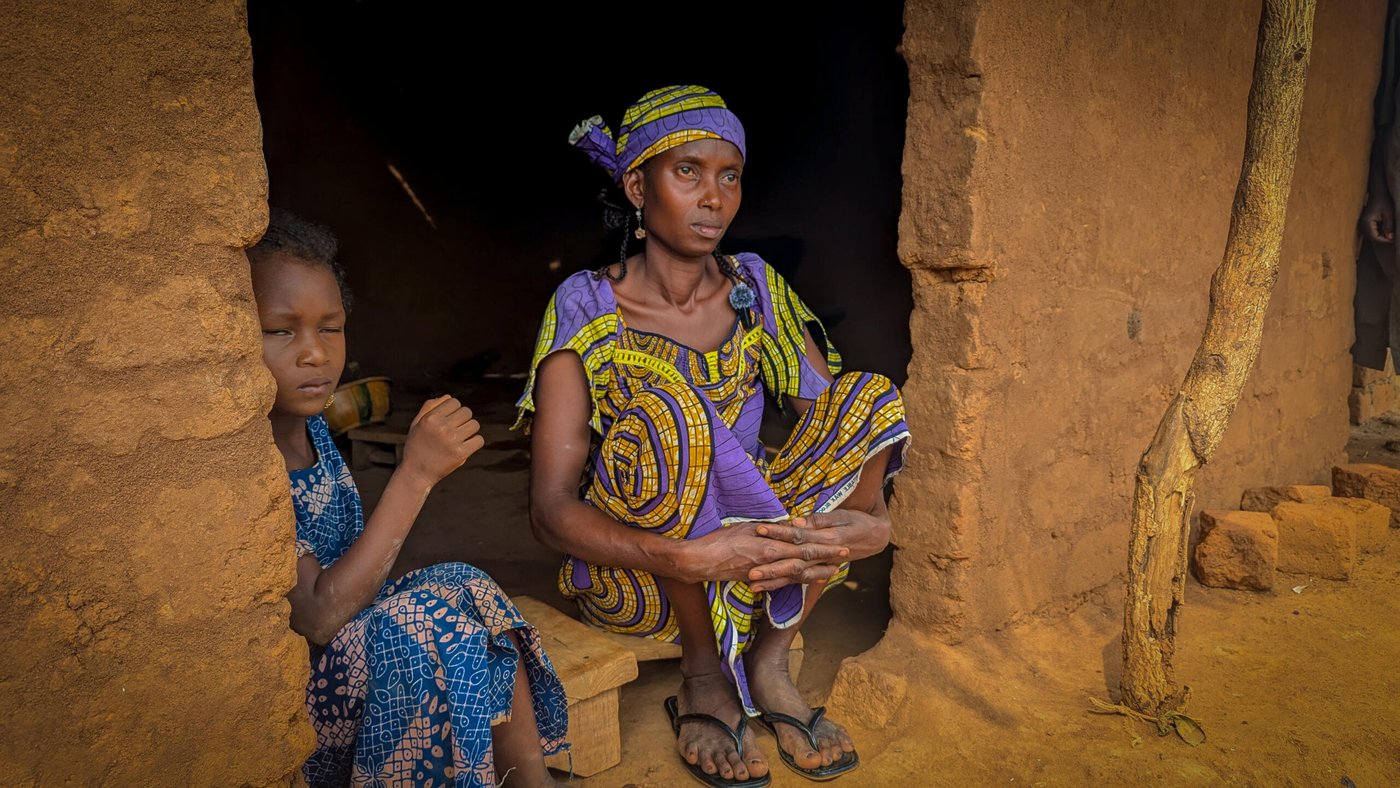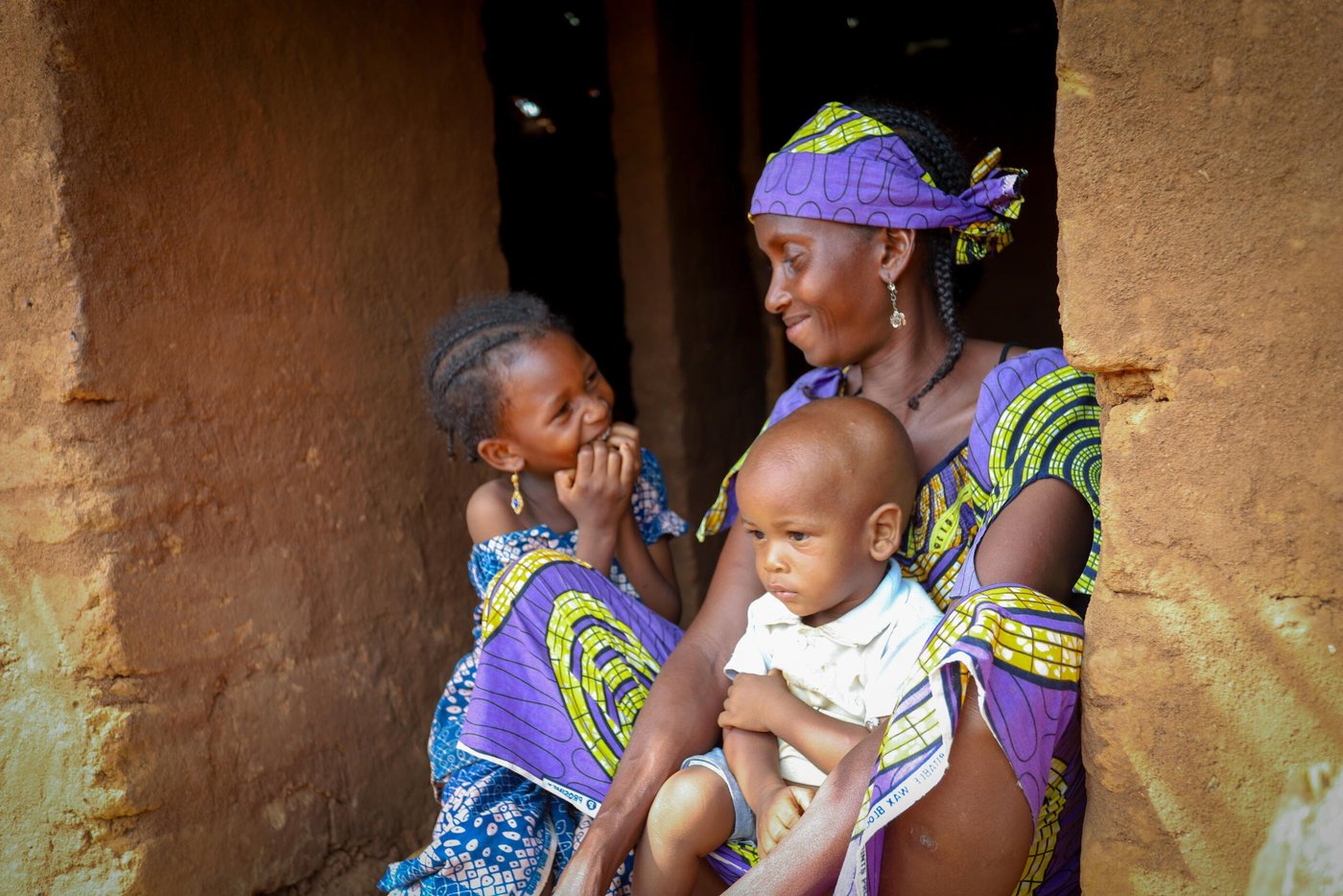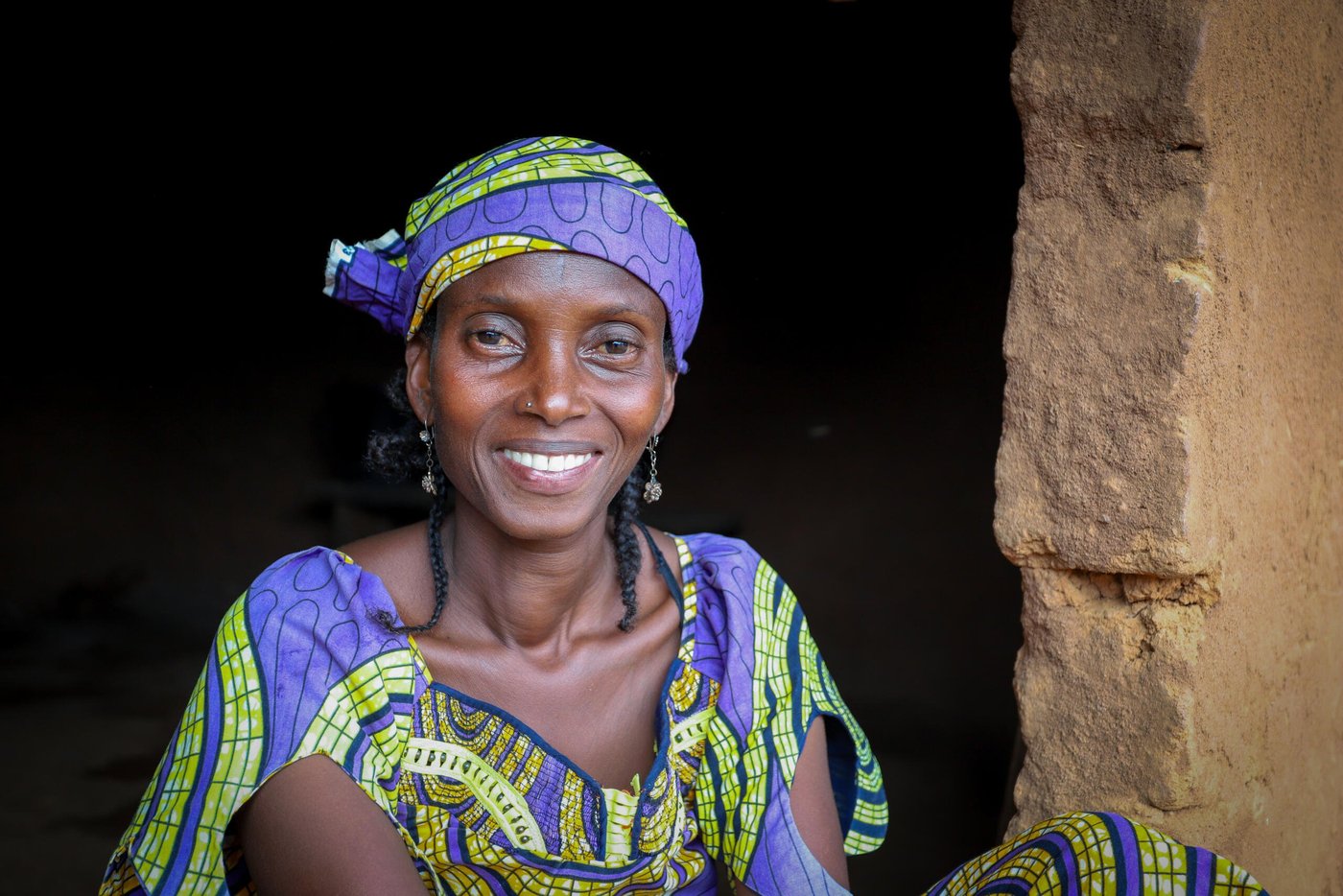Before war tore through her homeland, Hawaou lived a simple yet fulfilling life. Her husband worked as a farmer, while she cared for their three children, dreaming of a peaceful future for them. But in 2013, as the crisis in CAR escalated, their village was attacked. Amid the chaos, her husband vanished, forcing Hawaou to flee with her children, leaving behind everything she had ever owned, and everyone she had ever loved.
After a grueling journey, she settled in Nyabi, in eastern Cameroon, hoping to rebuild despite overwhelming hardship. But reality was harsh. She had no stable job, no support network, and few resources. She found herself living in a makeshift structure made of tarpaulins and fragile materials. “During the rainy season, water would seep in, making nights unbearable and putting my children’s health at risk,” she says.
For several years, Hawaou and her children lived in dire conditions, without support or a proper roof over their heads. “Sometimes, when I went out to do odd jobs, I'd leave the kids at home, but my heart would never be at peace. I kept thinking that the shelter might collapse on them,” she recalls.

A life shattered by displacement
In 2024, more than 1.1 million people needed adequate shelter assistance and household items in Cameroon. Since the onset of the Lake Chad Basin crisis in 2014 and the Northwest and Southwest crisis in 2016-2017, an estimated 9,223 homes were intentionally burned, denying thousands their right to a decent home. The loss of shelter and household items exposes people to protection risks and has a profound impact on their physical and mental wellbeing, particularly women and children. These conditions often force families to adopt negative coping strategies including early marriage, economic exploitation, recruitment by armed groups and other human rights violations.
In the East Region of Cameroon, the situation is especially critical. The area hosts thousands of displaced people and refugees from CAR, placing additional pressure on already limited resources. Many families still lack safe, dignified housing because of the ongoing conflict, insecurity, and displacement in CAR. There remains an urgent need for adequate shelter and essential non-food items.

A future full of hope
The Norwegian Refugee Council (NRC) provided Hawaou and her family with a proper home, restoring their sense of security and dignity. Like 56 other families, her fragile home was replaced with a sturdy house built from durable materials, offering a safe and stable space where she could finally envision a better future for her children.
"Previously, every rainstorm was a threat,” she says. “Our belongings would get soaked, and we never felt truly safe. Now, we can finally breathe. Nights were tough, my children often fell sick, and I constantly feared that, one day, the wind would carry everything away.”
With this support, Hawaou and her children have found happiness once again. They now sleep under a solid roof, free from the constant fear of storms or the risk of losing everything once more.
Today, Hawaou can finally focus on what matters most: her children’s future. With a stable home, she’s planning to enroll them in school and give them the chance to learn, grow, and dream again. She has also started selling small goods in her village, determined to build a stronger financial foundation for her family.
A proper house is just the start
In 2024, our shelter programme in Cameroon reached over 14,700 people. Yet thousands of refugees still live in unsafe, precarious conditions. Faced with repeated and prolonged displacements, communities grow increasingly vulnerable and the need for durable solutions, such as local integration or relocation, has never been greater. Taking action to ensure safe housing, access to education, and livelihood opportunities is no longer optional. It is urgent.
Sign up to our newsletter to read more stories from around the world.


